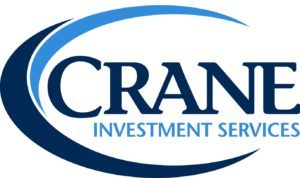You may have heard the economic terms inflation, deflation, and hyper-inflation. We’ll explain what these terms mean.
Inflation
When too much money chases too few goods, we have inflation. Inflation happens when prices increase due to high demand and either a decrease in supply or a supply that doesn’t keep up with demand.
In theory, the recent infusion of cash in the form of aid due to the pandemic, could lead to an increase in demand because people are going to spend that money.
Inflation can be slowed or avoided if the excess money is saved and not spent. Inflation isn’t entirely bad unless it happens quickly creating hyperinflation.
Hyper-inflation
When prices of goods and services increase significantly and quickly, hyper-inflation happens. This devalues currency and if severe, some people may trade other things of value instead of currency. This could be livestock, gold or other goods that are easily traded.
Hyper-inflation usually results when a government incurs financial or political stress. Wars and declining tax revenue are some of the culprits.
Deflation
The opposite of inflation is deflation. This is when prices decrease usually due to excess supply of goods and a decreased demand for those goods. Deflation can also happen when there is a decrease in the money supply from a reduction of debt availability, (banks aren’t lending or are making it more difficult to obtain a loan), or when there is a cash outflow from an economy, (investing in foreign markets instead of domestic investment).
While the U.S. economy remains healthy, understanding these basic economic principles may help you to interpret what economists are saying and how supply and demand influence prices.
Want to learn more? Contact us today.
Our Team
Casey Madsen
Financial Planner
800-692-3274
Check the background of this investment professional on FINRA’s BrokerCheck.
*Crane Investment Services Advisors are registered representatives of CUNA Brokerage Services, Inc. Representatives are registered, securities sold, advisory services offered through CUNA Brokerage Services, Inc. (CBSI), member FINRA/SIPC, a registered broker/dealer and investment advisor, which is not an affiliate of the credit union. CBSI is under contract with the financial institution to make securities available to members. Not NCUA/NCUSIF/FDIC insured, May Lose Value, No Financial Institution Guarantee. Not a deposit of any financial institution. CUNA Brokerage Services, Inc. is a registered broker/dealer in all fifty States of the United States of America.
FR-3447133.1-0221-0323



